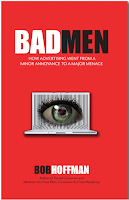This piece appeared in Campaign Magazine UK one week after the riot at the Capitol in Washington DC
There is nothing ambiguous about the role the marketing and advertising industry has played in the radicalisation of US politics and the horrifying events of recent days. There is a clear line connecting adtech and radicalisation.
While it has been widely reported and acknowledged that social media has played a significant role in the schism in US society, there is a deeper, more nuanced truth behind the deterioration of our politics.
The wedge that has been driven into the fabric of US society has been driven in part by information gathered about American citizens by the adtech ecosystem and fed into algorithms that are employed by platforms and online publishers.
The purpose of these algorithms is primarily to keep visitors “inside the corral” of the publisher or the platform. The more time a visitor spends in the corral, the more money the platform can realise from selling ad space.
To do this, the platforms feed visitors ever more “engaging” content. Experience has taught the algorithms that the more juicy the material, the more likely they are to retain the visitor.
Consequently, the algorithms feed us incrementally more lurid notions of our own predispositions and connect us ever more closely with others who share them.

The study concluded that algorithms they use “to gain user attention and increase time on the platform” were driving people apart.
According to the report, “64% of all extremist group joins are due to our recommendation tools... Our recommendation systems grow the problem.”
A slide from the presentation said: “Our algorithms exploit the human brain’s attraction to divisiveness.” If left unchecked, it warned, Facebook would feed users “more and more divisive content in an effort to gain user attention and increase time on the platform”.
According to the WSJ story, “Facebook is under fire for making the world more divided. Many of its own experts appeared to agree – and to believe Facebook could mitigate many of the problems. The company chose not to.”
This report revealed the truth that Facebook and friends are more than a “bulletin board” where people express their opinions. It unambiguously describes the way these platforms actively direct people into extremist groups whose purpose is to divide us.
But there’s more to this story. We need to be honest with ourselves. For years, we have been hiding behind the skirts of Facebook and other online platforms.
While these companies have taken the heat, it has been largely unrecognised by the public that it is for the sole benefit of the advertising and marketing industry that Facebook and others do their squalid work. We are the hidden hand that guides and finances these dangerous practices.
In light of the murder and mayhem at the Capitol in Washington on 6 January, it has been suggested that some in the Republican Party need to stop pretending they didn’t understand the consequences of standing by quietly while dangerous, irresponsible lies were being promulgated by members of their party.
I would like to suggest that we in the advertising industry are no less guilty of standing by quietly and pretending we don’t understand the consequences – in our case, of our dangerous addiction to adtech and the concomitant destruction it engenders.
For years, many of us have described adtech as dangerous. It is now time to upgrade that description to disastrous. The leaders of our industry – the ANA, the 4As, IAB, and the chief marketing officers of our biggest advertisers – must face up to what adtech is doing to our society and act immediately and decisively to reform it.




